
Welcome
If you thought of Athens as just a necessary evil of your trip on the way to the islands, it’s time you changed your mind. The modern city offers an amazing variety of activities and places of interest to keep you happy and busy while you’re waiting for the boat. Admittedly, concrete-loving Athens is not the prettiest of cities, but within the urban landscape you’ll find oases of old-style neighborhoods and small parks, ancient sites and museums packed with some of the most celebrated artifacts in the world. Add to that the excellent weather, yummy food, vivid nightlife and the open, leisured lifestyle for which Greeks are famous and you have an irresistible mix. Athens is blessed with a long coastline dotted with clear blue beaches just a bus ride away from its centre, making it a starting point for swimmers cautiously taking their first dips of the summer season.
The capital of Greece is like a public experiment, always changing and reinventing itself. Constructions, renovations and excavations are a daily feature, giving you the opportunity to watch the city changing before your eyes - and filling your shoes with dust. Athens is very different from other European capitals: You walk down an avenue with neoclassical and middle-of-the-century architecture, boutiques and cafés but two blocks down you have the feeling you’ve entered the chaotic lifestyle of an oriental city. This combination of European and oriental flair, Greek and Balkan style, as well as the Athenians’ unwaivering love of Europe, create a confusing and seductive mix for the visitor.
The present economic crisis has undoubtedly dampened the city’s usual high spirits as the country struggles to put its finances in order by cutting government spending, opening up the economy and restructuring the bureaucratic public sector. With austerity biting hard on people’s dwindling wages, protests and strikes have become part of everyday life which, in the worst case scenario, means you may face a frustrating strike in state-run museums and sites.
Having said this, the city will not disappoint you. Athens has experienced major face lifts over the past decade, most of which took place in view of the Athens 2004 Olympics. The basic public transport and road infrastructure has seriously improved, with the new airport and Metro providing a much-needed upgrade of services and faster commuting. If you’re staying in the city center, you will find that most sites, museums and other places of interest are within walking distance from each other, and the Metro will effectively get you anywhere you want to go. All the same, traffic chaos and pollution remains an issue, as Greeks love to get behind the wheel even for the shortest of distances.
One of the most impressive changes over the last decade was the seamless integration of the ancient and the modern parts of town. A pedestrian walkway created to connect the most significant archaeological sites surrounding the Acropolis Hill has united them with the 19th-century neoclassical houses, new restaurants, cafés and everyday lives of its roughly four million inhabitants.
There is no doubt that Athens is at its best in summer, when daily activities move out into the open air, with cafés, restaurants and bars serving customers in gardens, courtyards and even on pavements, allowing you to make the most of the balmy weather and moonlit sky.
In Tune With the City
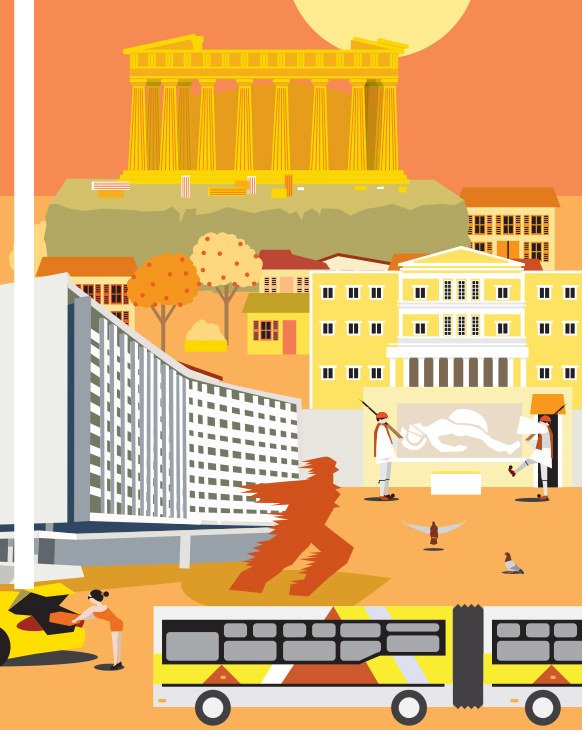
Art
Revisiting Greece

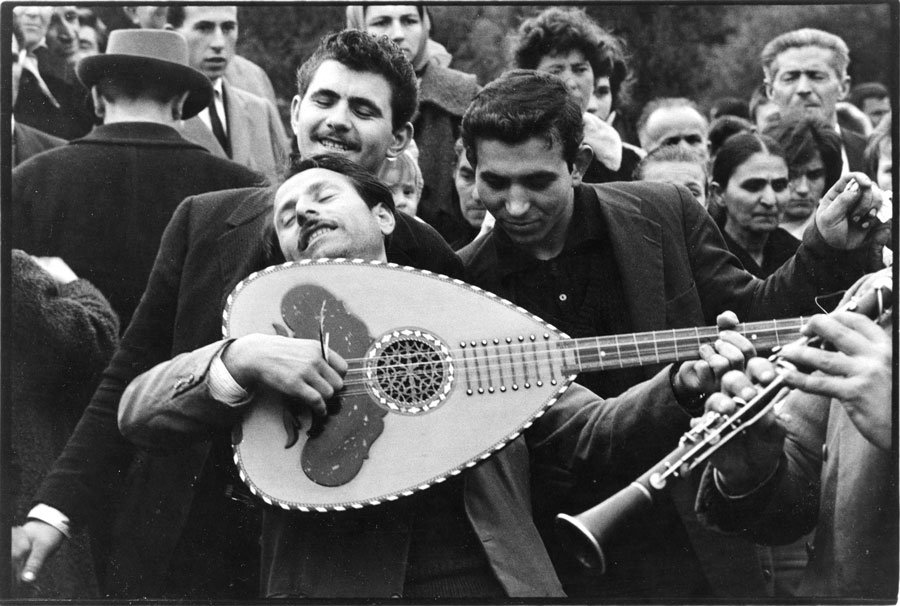 In 1961 the prominent photographer Constantine Manos, born in the United States to immigrant Greek parents, went on a three-year trip around Greece where he captured rare moments of everyday farm life and customs. Manos’ frank portrayal of villagers and their harsh living conditions in mountain villages and islands offered a penetrating look into Greek rural life in the 60s. These pictures formed the renowned Greek Portfolio which was first published in 1972 and won Manos a series of awards.
In 1961 the prominent photographer Constantine Manos, born in the United States to immigrant Greek parents, went on a three-year trip around Greece where he captured rare moments of everyday farm life and customs. Manos’ frank portrayal of villagers and their harsh living conditions in mountain villages and islands offered a penetrating look into Greek rural life in the 60s. These pictures formed the renowned Greek Portfolio which was first published in 1972 and won Manos a series of awards.
 Fifty years later, Manos re-examines the black and white shots he took during the period (to which he added more in 1967) and offers a new reading of his original material in an exhibition held at the Benaki Museum. The first part of the exhibition presents a number of original prints of his photographs, which he chose himself in 1972 to illustrate the portfolio of the same name. In the second part the themes were selected from amongst 219 original prints, which the photographer recently donated to the Museum’s Photographic Archive, and which were not included in his original composition of A Greek Portfolio.
Fifty years later, Manos re-examines the black and white shots he took during the period (to which he added more in 1967) and offers a new reading of his original material in an exhibition held at the Benaki Museum. The first part of the exhibition presents a number of original prints of his photographs, which he chose himself in 1972 to illustrate the portfolio of the same name. In the second part the themes were selected from amongst 219 original prints, which the photographer recently donated to the Museum’s Photographic Archive, and which were not included in his original composition of A Greek Portfolio.
- “Constantine Manos, a Greek Portfolio 50 Years Later”, 22 May – 25 August 2013, Benaki Museum (main building), 1 Koumbari street & Vasilisis Sofias Avenue, Kolonaki / Full ticket: €7, Temporary exhibition: €5 / Wed, Fri 09:00-17:00, Thu, Sat 09:00-24:00, Sun 09:00-15:00, closed on Mon, Tue and August 15th / www.benaki.gr / Metro: Syntagma
Bedrooms revealed
The bedroom, the most intimate and personal room of ones house, says a lot about the people who sleep in it and ultimately about the city which surrounds it. Their differences and commonalities, as affected by social demographics, lifestyles, building styles and neighborhoods, are revealed through a series of typical Athenian bedrooms created by the artists of decaARCHITECTURE. The group first presented the installation at the 13th Venice Architecture Biennale in 2012 and in 2013 adjusted it for the TAF Art Foundation.
Bedrooms is an exhibition of 24 bedrooms that were photographed and surveyed in June and July 2012. It documents the prevalent styles of the Athenians’ sleeping quarters along with the city’s emerging cultural diversity which is still hidden inside the framework of its fabric. It includes, among others, the bedroom models of a social housing project, a mansion in the center of Athens, a brothel from the red light district, a commune for street artists, a neoclassical building, a basement inhabited by immigrants, and a middle class family living in the most common of Athenian structures, the apartment building (polikatikia). Each model is accompanied by a photograph of the bedroom taken by photographer Yannis Hadjiaslanis, seen through a viewfinder. The exhibition will run until September 2nd 2013.
- TAF Art Foundation, 5 Normanou street, Monastiraki, Mon-Sat 12:00-21:00, Sun 12:00-19:00, free admission / Metro: Monastiraki
Music
Roger Waters breaks down The Wall

The legendary Roger Waters, co-founder and main composer of Pink Floyd, is expected to present a new version of his audiovisual masterpiece The Wall to audiences around Europe. After the huge success of his previous tour two years ago Waters redesigned the show in a way that makes the most of new technologies and large concert venues. He will be arriving in Athens with his full band on July 31st to present the album in its entirety, promising a spectacular and dramatic show. The Wall, first released as a double album by Pink Floyd in 1977, explores the themes of isolation and abandonment which lead to the building of a metaphorical wall separating a person from any human contact. The ticket sale started in December 2012 but there are still many tickets available.
- The concert will be held at the closed stadium of OAKA (37 Kifisias, Marousi 210 6834060, www.oaka.com.gr). For tickets: €64.90 and €44 and are available online at www.ticketpro.gr and www.tickethouse.gr, as well as at Tickethouses’ booth (42 Panepistimiou, inside the arcade, 210 3608366, hours: Mon & Wed 10:30-18:30, Tue, Thu & Fri 10:30-21:00 Sat 10:30-16:00).
More summer concerts
Nouvelle Vague, the French masters of song reinterpretations, return to Athens after two years with a new album and their well-loved ethereal performances to dazzle their fans. Melanie Pain, the bands’ original singer, will open the concert in Athens presenting her own material in her usual elegant style. She will be followed by Liset Alea who will sing songs from the bands’ latest album but also some of the songs that made Nouvelle Vague the world’s favourite cover band. The heart of Nouvelle Vague is French musicians and music producers Marc Collin and Olivier Libaux who founded the band in 2003 in Paris and went on to conquer the world with their stylish re-enditions of new wave and post-punk classics such as Ever Fallen in Love by the Buzzcocks and Just Can’t Get Enough by Depeche Mode. Part of their huge success lies with the eight lead singers who have collaborated with the duo and whose husky, playful voices and interpretations have produced the fresh bossa nova and jazz sounds which areassociated with the band. Nouvelle Vague will appear for one night on September 13th at the central open-air yard of Technopolis.
After Madeleine Peyroux and Dulce Pontes, the annual summer concerts on Lycabettus Hill continue with French sensation Zaz, who won worldwide acclaim with her song “Je Veux”. Zaz, known for her mixing of French chanson, soul and jazz, released her new album Recto Verso earlier this year and will be performing at the Theatre of Lycabettus on September 3rd (see Lycabettus Hill section for access). In accordance with the trend which sees a new rise in the popularity of retro rock, Scorpions will be returning with their friends to Greece on September for three concerts (11, 12 & 14).
TO BUY TICKETS
- For Nouvelle Vague: Venue: Technopolis, 100 Pireos Street, Gazi / Tickets: €23 in presales and €28 at the entrance. Tickets available from Public bookstore (Syntagma Square), Tickethouse (42 Panepistimiou Street, inside the arcade, Hours: Mon & Wed 1030-1830, Tue, Thu, Fri 1030-2100, Sat 1030-1600), www.ticketarena.gr
- For Zaz: €35, €25 for students -Public bookstore: 1 Katayiorgi Servias, Syntagma, hours: Mon-Fri 09:00-21:00, Sat 09:00-20:00 -Papasotiriou bookstores: 37 Panepistimiou & Korai Street, Syntagma, hours: Mon-Fri 09:00-21:00, Sat 09:00-18:00 -Website www.viva.gr
- For Scorpions & friends: €38, €30 for students -Public bookstore: 1 Katayiorgi Servias, Syntagma, hours: Mon-Fri 09:00-21:00, Sat 09:00-20:00 -Papasotiriou bookstores: 37 Panepistimiou & Korai Street, Syntagma, hours: Mon-Fri 09:00-21:00, Sat 09:00-18:00 -Website www.viva.gr -Ticket House (42 Panepistimiou, inside the arcade, 210 3608366, hours: Mon-Fri 10:30-18:30, Sat 10:30-16:00), or online at www.ticketpro.gr.
Last call!
“The Antikythera Shipwreck – The ship, the treasures, the Mechanism”
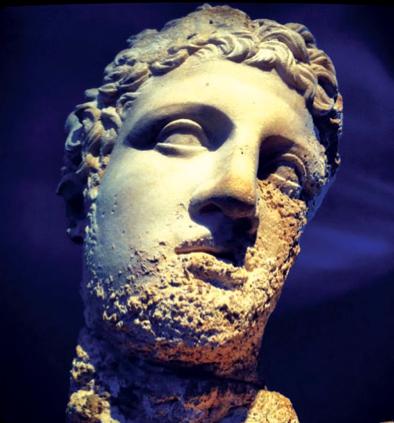 Due to the unexpectedly large turnout, the Antikythera Shipwreck exhibition which opened last year has been extended until the end of August. Visitors to the Archaeological Museum are guided through the ancient shipwreck which was discovered near the island of Antikythera, south of the Peloponnese. The objects recovered in 1900, 1901 and 1976 from the seabed include statues, amphorae, domestic utensils, and the statue of a disk thrower, of a Hercules, the head of a philosopher, a marble bull, a bronze lyre, ceramics and coins. Dating the finds has proved a difficult task, as many objects have been found to be older than others.
Due to the unexpectedly large turnout, the Antikythera Shipwreck exhibition which opened last year has been extended until the end of August. Visitors to the Archaeological Museum are guided through the ancient shipwreck which was discovered near the island of Antikythera, south of the Peloponnese. The objects recovered in 1900, 1901 and 1976 from the seabed include statues, amphorae, domestic utensils, and the statue of a disk thrower, of a Hercules, the head of a philosopher, a marble bull, a bronze lyre, ceramics and coins. Dating the finds has proved a difficult task, as many objects have been found to be older than others.
The most important part of the collection is the mysterious Antikythera Mechanism, an object dating to the second century BCE, which is believed to be the world’s first portable astronomical calculator. The mechanism was broken in pieces, but an archaeologist studying it at the time noticed that one large fragment of rock had a gear wheel embedded in it.
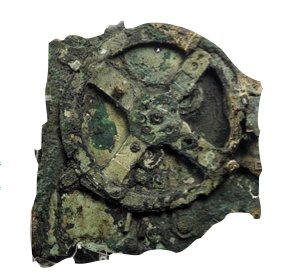 Scholars agree that the mechanism was made in the Greek-speaking world, as all instructions are written in the “Hellenistic Common”, the dialect spoken throughout the post-Classical antiquity. It displayed the positions of the Sun, the Moon and most probably the five planets known in antiquity, Mercury, Venus, Mars, Jupiter and Saturn. The Mechanism was used to predict solar and lunar eclipses, kept an accurate calendar of many years, and displayed the date of several Pan-Hellenic games that took place in Greece, namely at Nemea, Isthmia, Delphi, Dodona and Olympia.
Scholars agree that the mechanism was made in the Greek-speaking world, as all instructions are written in the “Hellenistic Common”, the dialect spoken throughout the post-Classical antiquity. It displayed the positions of the Sun, the Moon and most probably the five planets known in antiquity, Mercury, Venus, Mars, Jupiter and Saturn. The Mechanism was used to predict solar and lunar eclipses, kept an accurate calendar of many years, and displayed the date of several Pan-Hellenic games that took place in Greece, namely at Nemea, Isthmia, Delphi, Dodona and Olympia.
The device is remarkable for its level of craftsmanship and complexity (it has more than 30 gears), which has been compared to that of 19th century clocks. Since the purpose was to position planets with reference to the observer’s position on Earth, the device was based on the geocentric model – that Earth is the center of the universe. The exhibition also includes a documentary and a 3D film which present the story of the shipwreck and the function of the mechanism.
- “Τhe Antikythera Shipwreck: The ship, the treasures, the Mechanism”, runs until August 31st 2013, Archaeological Museum, 44 Patision Avenue, 213 214800, Hours: Mon 13:00-20:00, Tue-Sat 08:00-20:00, Sun 08:00-15:00 / Tickets: €7, free entrance on last weekend of September / http://www.namuseum.gr/wellcome-en.html / Train: Victoria










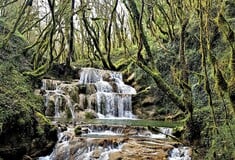
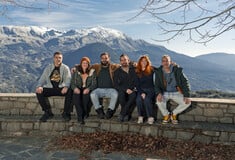



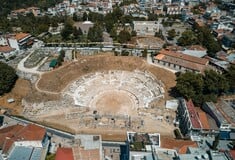
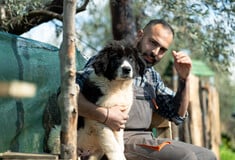

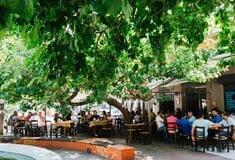








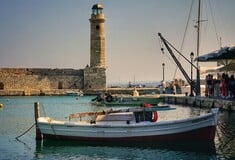
σχόλια